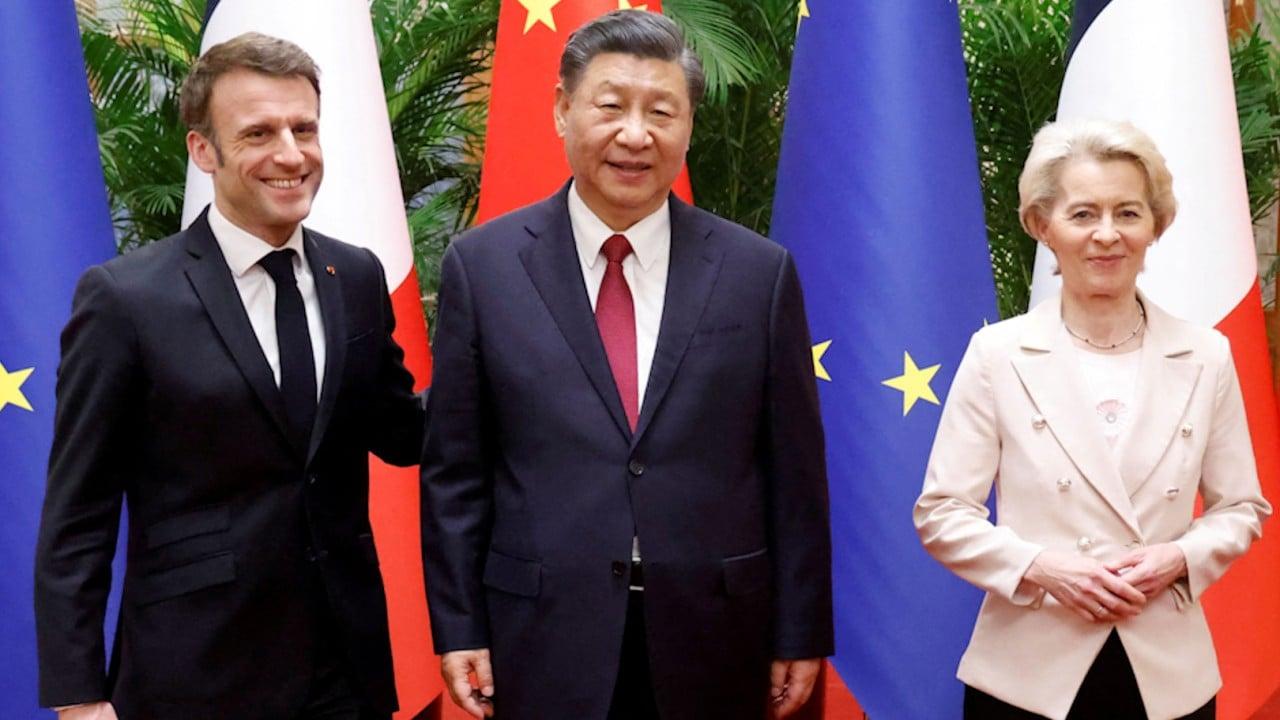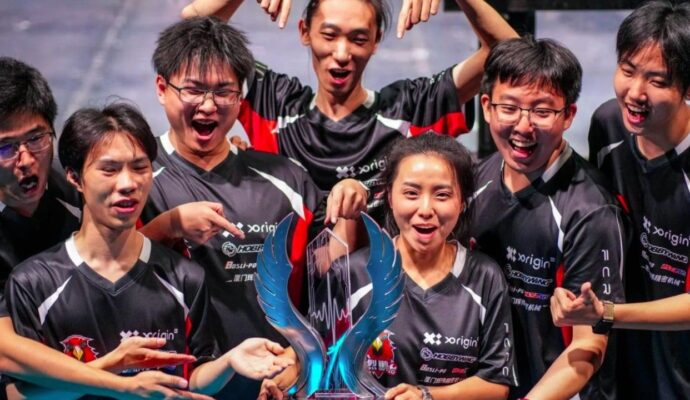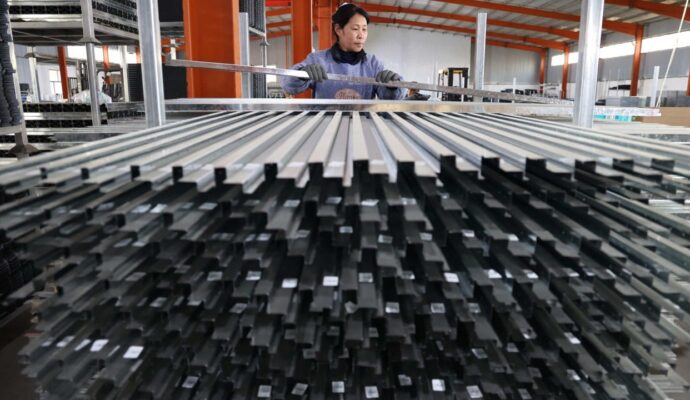
“A strong EU China policy relies on strong cooperation between members and institutions, and willingness to avoid ‘divide and conquer’ tactics we might face,” she said.
“We have seen in recent days and weeks those tactics in action.”
Her remarks seemed to refer to events two weeks in Beijing, where she met with Chinese President Xi Jinping this month, both alongside Macron and on her own.
Macron was treated to three days of pageantry and pomp, while von der Leyen pursued a relatively spartan itinerary in her 48 hours in the Chinese capital.
Von der Leyen, who is expected to secure another five-year term as commission president next year, said she made the trip to deliver in person the tough messages concerning economic de-risking to Chinese leader Xi Jinping.
“The trip was necessary to ensure we are as honest and clear in messaging in Beijing as we are in Brussels or Strasbourg,” she said.
Describing it as an exercise in “de-risking through diplomacy”, von der Leyen said the trip would “reduce the space for misunderstanding and miscommunication, regardless of how difficult conversations may be”.
The EU’s lack of a cohesive Taiwan policy among its 27 member states has been highlighted since Macron made his comments in a joint interview with Politico and Les Echos, a French newspaper, on a flight from Beijing to Guangzhou.
Politicians both in Europe and the US criticised the French president for his remarks, with some hawkish US lawmakers suggesting that American support for Ukraine would be predicated on European support for Taiwan.
Some European Parliament members were also critical of Macron, who also suggested that the EU should de-risk its economic relations with the US.
“We must work together with our like-minded partners on China policy, in particular in cooperation with the US,” Reinhard Buetikofer, chair of the parliament’s China delegation, said.
He added: “Whoever splits that front is not serving our values and interests. Strategic autonomy à la française would be risky for Europe.”
Also addressing the parliament, Josep Borrell, the EU’s high representative for foreign affairs, acknowledged that EU members had different points of view concerning China.
“This ought not to be a surprise to anyone,” Borrell said, adding that the aim of a common EU China policy would be to “smooth out these differences and find a common denominator”.
EU High Representative for Foreign Affairs and Security Policy Josep Borrell speaking during a session of the European Parliament on Tuesday. Photo: dpa
Borrell conceded that there had been “some failings to coordinate between EU institutions and member states” that “could have been avoided”.
The EU should have four main prongs to its China policy, Borrell said: “Values, economic security, Taiwan and Ukraine.”
He said that Taiwan was part of the EU’s “geostrategic perimeter” and that the bloc would “defend our interests without adding fuel to the fire, and I am sure that all European countries share this view”.
Parliament members mostly supported this stance.
“Our policy towards China is clear: cooperate where possible; compete where needed; confront where necessary,” said Radoslaw Sikorski, the former Polish defence minister who is now a MEP for the centre-right European People’s Party.
“This can continue indefinitely, but we have two red lines – don’t arm Russia, and don’t invade Taiwan. Russia made a catastrophic mistake in Ukraine. Let’s hope China does not make a similar one.”
Leftists provided some dissent. Özlem Demirel, a German MEP, said that while the focus was on China, the real “dictators and autocrats” were in Washington.
“I don’t think the United States cares about defending democracy or the people of Taiwan, they just care about power,” she said.
“I have never thought President Macron was a leader – he got the police to beat French workers and pushed through a pension reform. But when he doesn’t want to be taken to war by the US, he is right,” Demirel added.


